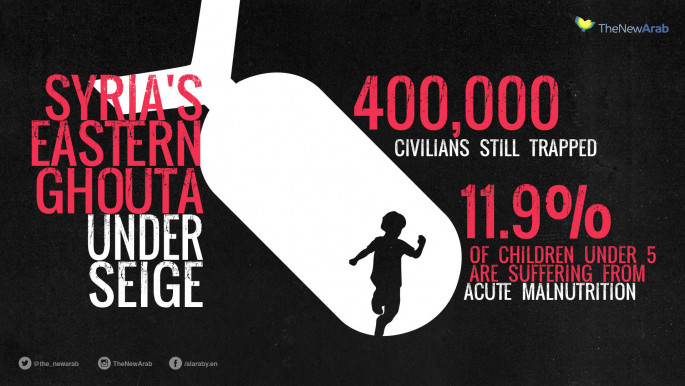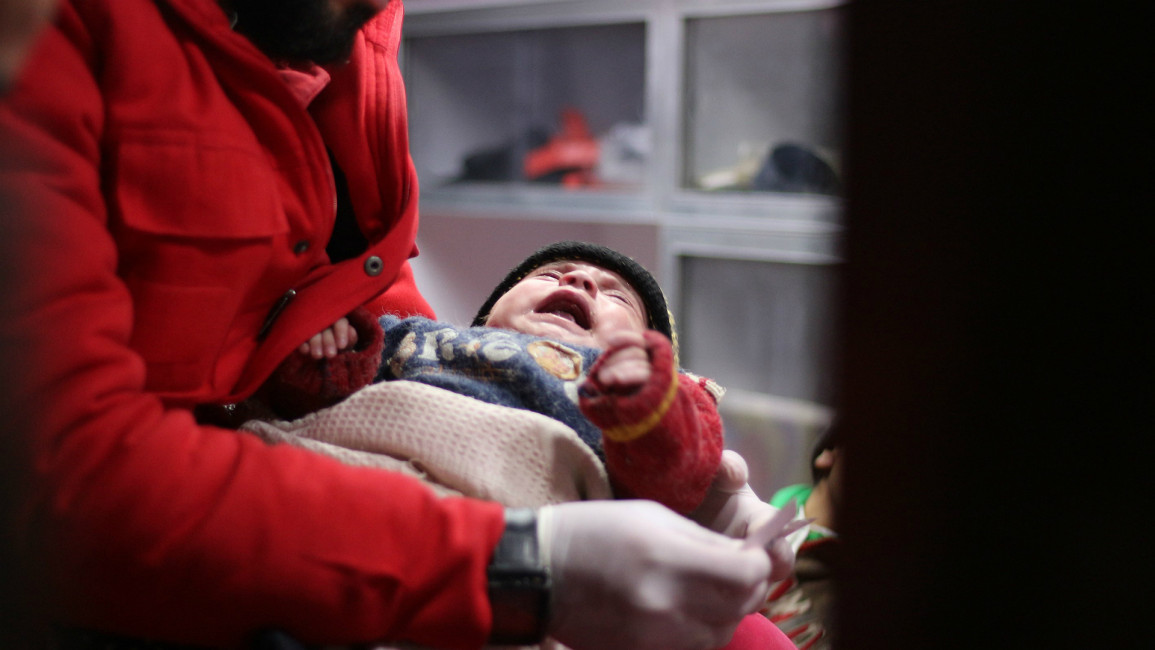Syrian children 'should not be bargaining chips' in Eastern Ghouta's tug of war
After a deal between Damascus and a rebel faction was struck, the ICRC started evacuation on Tuesday. Patients were evacuated from rebel-held eastern Ghouta in return for the rebels releasing detainees.
But international aid agencies have voiced concern over the terms of the deal.
"It is a not a good agreement if they exchange sick children for detainees, that means children become bargaining chips in some tug of war," said Jan Egeland, the UN humanitarian adviser.
Valerie Petitpierre, the ICRC’s operations coordinator for the region, said the ICRC continued to insist that humanitarian action should not be used as a bargaining chip.
Eastern Ghouta, which is east of Damascus, has been the target of devastating airstrikes and a crippling siege by the regime of Syrian President Bashar al-Assad.
Rights groups, including Amnesty International, have accused the Assad regime of using illegal cluster munitions on the besieged enclave.
 |
It is a not a good agreement if they exchange sick children for detainees - that means children become bargaining chips in some tug of war |  |
Around 400,000 people are believed to be trapped in the besieged area, with the UN having previously appealed for the Assad regime to allow the evacuation of around 500 priority patients.
From the list of 500 urgent cases announced in November at least 16 have already died for lack of medical assistance.
The enclave is controlled by rebels, the dominant faction among them Jaish al-Islam (Army of Islam), and has been under siege by the government for four years.
The ICRC said it and SARC had started evacuating 29 serious medical cases late on Tuesday and the ICRC’s Petitpierre said on Thursday that 16 had been evacuated so far.
The Syrian American Medical Society (SAMS) said on Twitter that 12 children were evacuated from the area overnight to receive medical care in hospitals in Damascus. It earlier said four had been evacuated on Tuesday.
Yasser Delwan, a Jaish al-Islam political official in Ghouta, said on Wednesday: "We worked to get them out through the Red Crescent, and we are working on evacuating the rest of the nearly 500 cases out."
There was no indication of whether more evacuations would be allowed, he added.
Turkish President Recep Tayyip Erdogan also said on Sunday that his government was working with Russia, a key Assad backer, on evacuations.
A November survey in the rebel-held area outside Damascus showed 11.9 percent of children under five were suffering acute malnutrition, "the highest rate ever recorded in Syria" since the conflict started.
Eastern Ghouta is one of the last remaining opposition strongholds in Syria. Recent weeks have seen an increase in violence and aid groups have expressed "grave" concerns over the deteriorating situation in the region.
The Syrian conflict began when the Baath regime, in power since 1963 and led by Assad, responded with military force to peaceful protests demanding democratic reforms during the Arab Spring wave of uprisings, triggering an armed rebellion fuelled by mass defections from the Syrian army.
The brutal tactics pursued mainly by the regime, which have included the use of chemical weapons, sieges, mass executions and torture against civilians have led to war crimes investigations.


